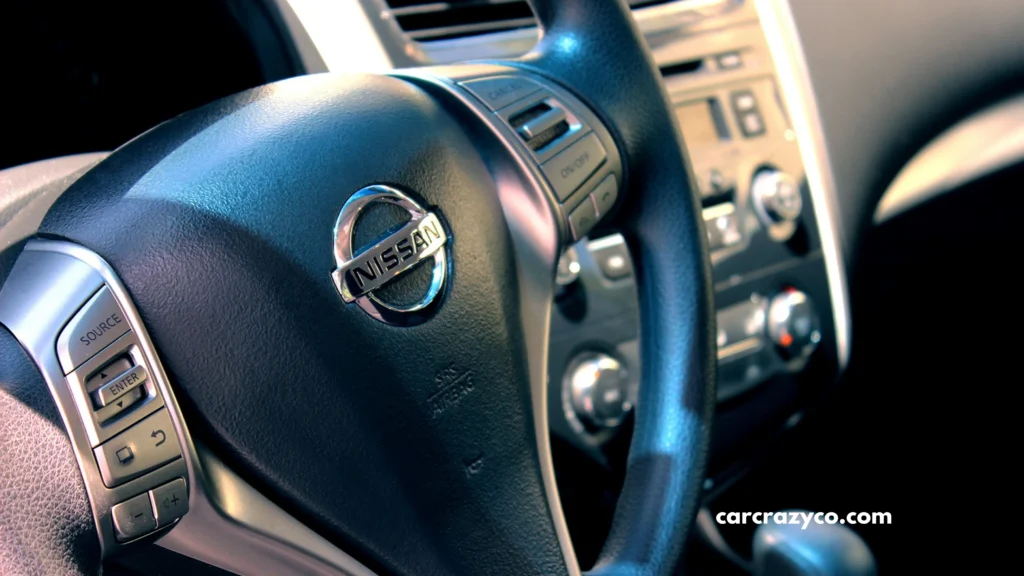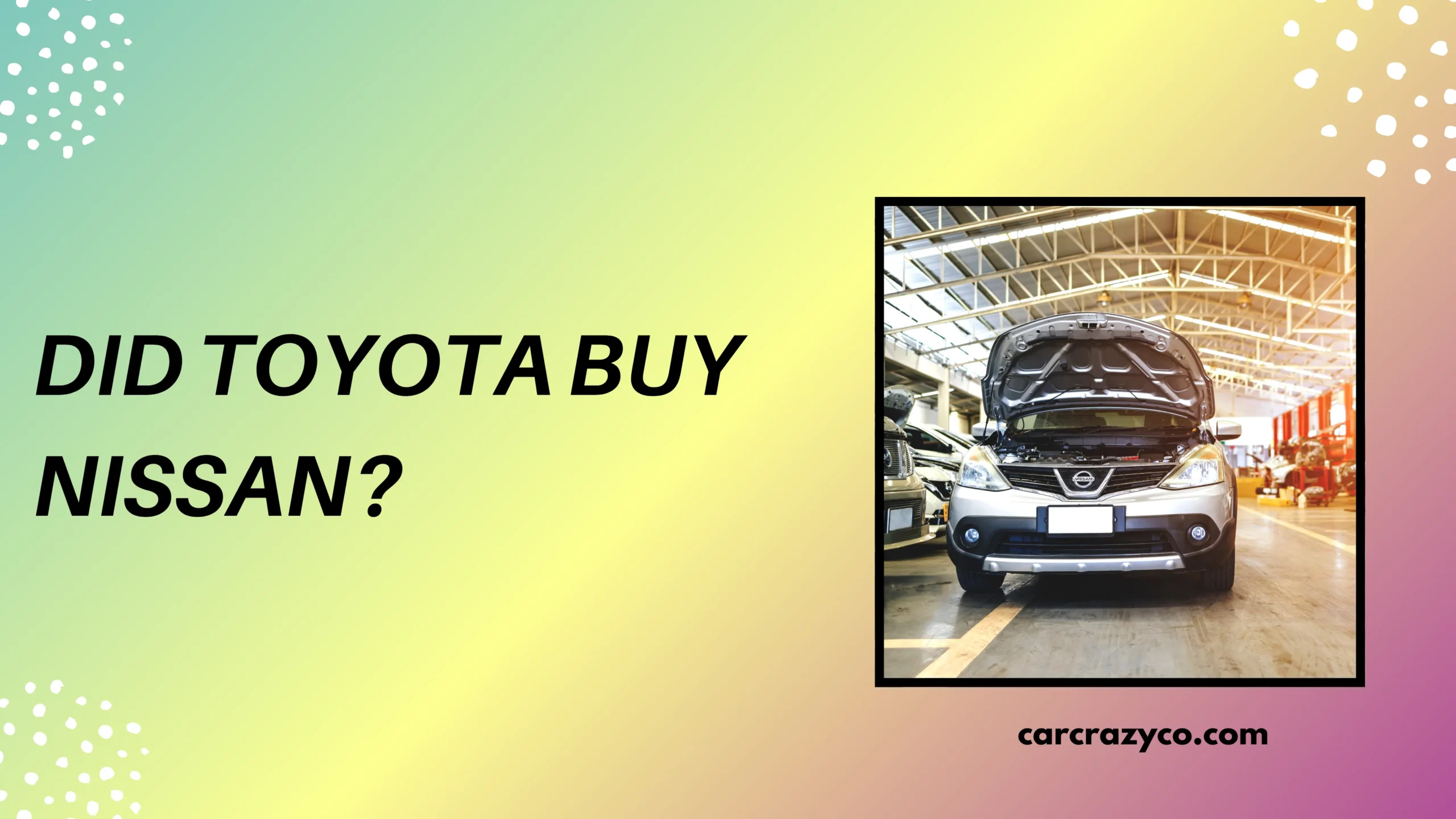The automotive world is no stranger to big business moves, but the question on many lips today is: Did Toyota buy Nissan? Such a development would shake up the industry, altering the landscape for millions of drivers and investors worldwide. Understanding this possibility matters not just for car enthusiasts but for anyone interested in how the global auto market evolves.
This question reflects deeper themes about competition, collaboration, and survival in a rapidly changing industry. Toyota and Nissan have been fierce rivals and occasional partners, so the idea of one buying the other is both fascinating and alarming. It speaks to the future of innovation, market power, and brand identity in the automotive sector.
In this blog post, we’ll unpack the truth behind these rumors, analyze what such a takeover would mean, and explore the broader implications for consumers, employees, and the global economy. If you’ve been wondering about the relationship between these two giants, you’re about to get the full story.
1. The Current Relationship Between Toyota and Nissan
Toyota and Nissan are two of the largest car manufacturers in the world, each with its unique strengths and market strategies. Historically, they have competed fiercely, especially in key segments like hybrids, electric vehicles, and SUVs. Both companies have also entered partnerships and alliances with other manufacturers, but direct cooperation between them has been limited.
Understanding their current relationship helps clarify why a takeover would be surprising and complex. Toyota has its well-known hybrid technology, while Nissan gained recognition with its early electric vehicle, the Leaf. These differences showcase their competing innovations rather than collaboration.
While they operate in overlapping markets, their business models and company cultures remain distinct, making any merger or acquisition a challenging prospect.
2. Industry Rumors and Speculation
Over the years, rumors occasionally surface about mergers or acquisitions involving Toyota and Nissan, fueled by market speculation and media hype. However, these rumors often lack concrete evidence and tend to exaggerate the likelihood of such a major deal. The automotive industry’s complexity means that companies focus more on strategic partnerships than outright purchases of competitors.
Analysts suggest that buying Nissan outright would be an enormous financial and regulatory challenge for Toyota. Such a move could trigger antitrust concerns and disrupt the balance of competition. These hurdles make the idea of a simple acquisition unlikely.
Still, the rumors persist, reflecting industry anxieties about consolidation and the shifting dynamics of the global auto market.

3. Business and Financial Implications
If Toyota were to buy Nissan, it would represent one of the largest acquisitions in automotive history. This would require billions of dollars and major changes in leadership, branding, and operational strategy. The financial burden alone would be immense, especially in an era of technological transition to electric and autonomous vehicles.
Toyota would gain access to Nissan’s resources, technologies, and global markets, but managing such a vast portfolio poses risks. Integration challenges could affect product quality, employee morale, and customer loyalty. Investors would closely watch how the merged entity balances growth and innovation.
This scenario also raises questions about the future of Nissan’s iconic models and brand identity within Toyota’s portfolio.
4. Strategic Alternatives to Acquisition
Instead of buying Nissan, Toyota has focused on other strategies such as joint ventures, technology sharing, and partnerships with suppliers and startups. These approaches allow Toyota to innovate and expand without the complexities of a full merger. For example, Toyota collaborates with companies like Subaru and Mazda to share technology and develop new platforms.
Toyota and Nissan are more likely to continue competing while exploring selective partnerships rather than merging completely. This helps maintain competitive tension that drives innovation and keeps options open for future growth.
Such strategic alternatives are common in the automotive world and provide flexibility in a rapidly changing market.
5. What This Means for Consumers and the Market
For consumers, a Toyota acquisition of Nissan would mean potential changes in vehicle offerings, pricing, and service experiences. It could lead to overlapping models being discontinued or merged, affecting choices and availability. However, it could also result in stronger combined technologies and more efficient manufacturing.
The market impact would be significant, potentially reducing competition and affecting car prices and innovation pace. Regulators would carefully scrutinize such a deal to protect consumer interests.
Ultimately, whether or not Toyota buys Nissan, the relationship between these companies will continue shaping the automotive landscape for years to come.

Contents
- 1 Conclusion
- 2 FAQs
- 3 1. Has Toyota officially bought Nissan?
- 4 2. Why do rumors about Toyota buying Nissan persist?
- 5 3. Would Toyota buying Nissan be financially feasible?
- 6 4. How do Toyota and Nissan currently compete?
- 7 5. Are there any partnerships between Toyota and Nissan?
- 8 6. What would a Toyota-Nissan merger mean for consumers?
Conclusion
The question “Did Toyota buy Nissan?” is an intriguing one that taps into the broader dynamics of the automotive industry. While rumors have circulated, the reality is that no such acquisition has taken place, and it remains unlikely in the near future due to financial, regulatory, and strategic reasons.
Both Toyota and Nissan continue to thrive independently, competing and innovating in their own right. Their rivalry drives advancements in technology, safety, and sustainability, benefiting consumers globally. Strategic partnerships and collaborations elsewhere seem to be the preferred path over full mergers.
Staying informed about such developments helps us understand how the auto industry adapts to change. Whether through competition or cooperation, Toyota and Nissan will both play pivotal roles in shaping the future of mobility.
FAQs
1. Has Toyota officially bought Nissan?
No, Toyota has not bought Nissan, and there are no official plans for such an acquisition.
2. Why do rumors about Toyota buying Nissan persist?
Rumors arise due to industry speculation, competition shifts, and media hype but lack factual basis.
3. Would Toyota buying Nissan be financially feasible?
It would be a massive financial challenge with regulatory hurdles, making it unlikely.
4. How do Toyota and Nissan currently compete?
They compete in hybrid, electric, and SUV markets with distinct technologies and strategies.
5. Are there any partnerships between Toyota and Nissan?
No significant direct partnerships exist; both focus on alliances with other companies.
6. What would a Toyota-Nissan merger mean for consumers?
Potential changes in vehicle models, pricing, and technology, but possibly less competition.








